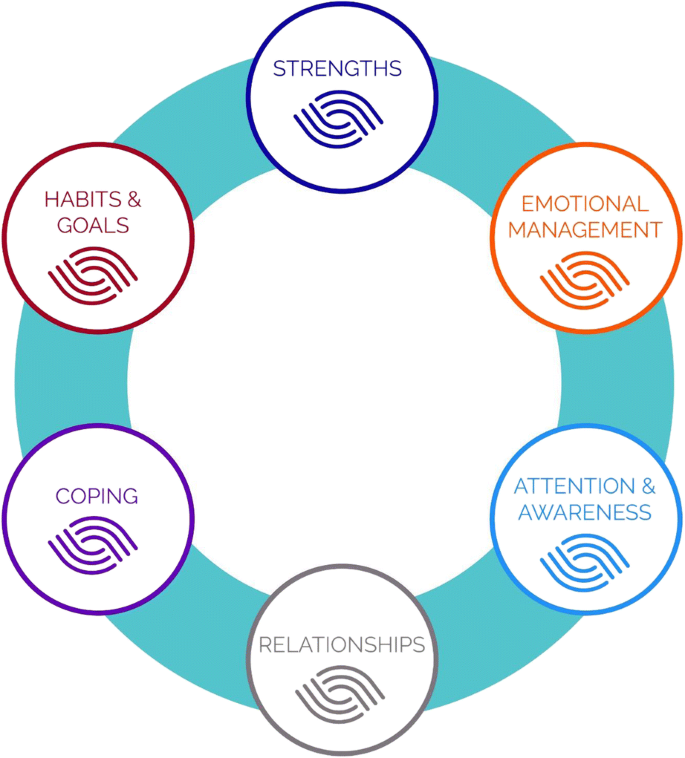Rusk and Waters (2015) identified five pathways to positive psycho-social functioning (include definition). These five pathways include:
- Attention & Awareness
- Comprehension & Coping
- Emotions
- Goals & Habits
- Virtues & Relationships
Following this initial study, Waters and Loton (2019) evaluated the five pathways in 10 schools to determine their validity in school settings. As a result of this study, adjustments were made to the initial five pathways to create the SEARCH positive education framework. School leaders and teachers participating in the study felt it necessary to separate the virtues and relationships pathway, in order to place a more clear focus on the development of each in schools. Student feedback found that the term “virtues” felt old-fashioned and some teachers felt the term also could carry religious undertones that would not fit their school context. As such, the virtues pathway was changed to “strengths.” Comprehension and coping were combined to simplify the framework. This led to the creation of the SEARCH framework as follows:

In a literature review of evidence-based positive psychology interventions for schools, Waters and Loton (2019) found 75 interventions that support this framework. Waters also found recently that students who learned SEARCH principles and schools prior to the COVID-19 pandemic reported greater resilience and growth in the face of challenges, as well as increased emotional processing, positive framing and strengths use during remote learning(Waters, 2020, 22:25). Learning SEARCH principles prior to COVID-19 also contributed to greater academic motivation (Waters, 2020). Waters (2020) encourages school leaders and teachers to use this framework in establishing a wellbeing program, organizing interventions, or evaluating the current wellbeing efforts.
References:
Rusk, R.R. & Waters, L. E. (2015). A psycho-social system approach to wellbeing: Empirically deriving the five domains of positive functioning. International Journal of Positive Psychology, 10(2), 141-152. https://doi.org/10.1080/17439760.2014.920409
Waters, L. (2020, November 18). Lea Waters IPEN keynote 2020: SEARCHing for wellbeing [Video]. YouTube. https://www.youtube.com/watch?v=d8I4HFtqIo0
Waters, L., & Loton, D. (2019). SEARCH: A meta-framework and review of the field of positive education. International Journal of Applied Positive Psychology, 4(1–2), 1–46. https://link.springer.com/article/10.1007/s41042-019-00017-4